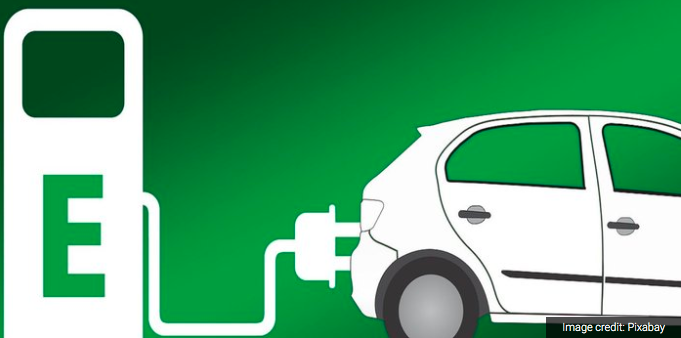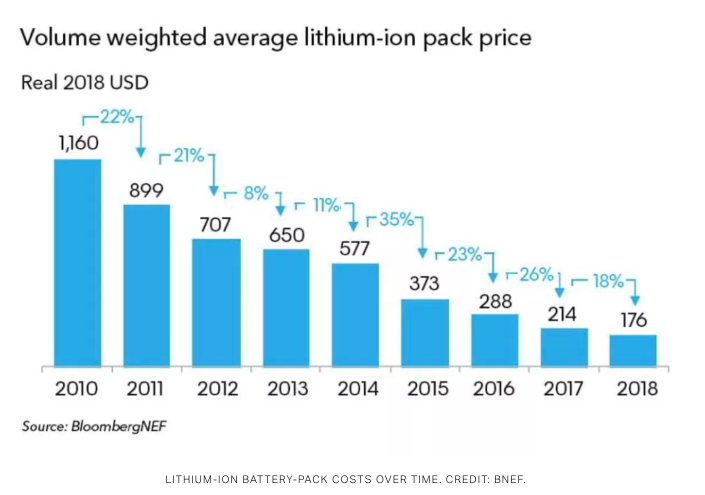
The rapid decline in battery prices for electric vehicles will make them far more affordable in the near term, and as a result, the age of gas-powered vehicles may end sooner than experts previously thought, according to a new report from Bloomberg NEF. In the annual Bloomberg outlook on electric vehicles, they predict that by 2040, 57% of all new passenger vehicles sold (estimated at 56 million) and 30% of all vehicles on the road globally will be fully electric vehicles.
- Because the price of batteries has dropped so quickly in less than 10 years, they now predict that there will be price parity between electric and conventional internal combustion engine (ICE) vehicles by the mid-’20’s, with the ICE vehicles declining after 2030.
- The increases in EV sales are also driven by Chinese demand and demand in the “shared vehicles” market.
- Passenger vehicle oil demand will peak in 2028 and in 2035 for commercial vehicles, but increased use of electric vehicles only increases electricity demand by about 7% globally in 2040.
That means peak oil demand will also arrive sooner than expected — which in turn means ambitious climate goals will be more affordable and achievable than previously thought. This trend is already being seen in auto markets, with a surge of new electric vehicles set to come to market in the next 5 years. For example, another manufacturer, Mercedes-Benz, announced on Monday it plans to make its new passenger car fleet carbon-neutral within two decades, based on sales of electric vehicles and renewable energy. According to CNN Business, the company described its decision as a “fundamental transformation of our company,” and is aggressive compared to similar carbon-neutral targets announced by other major automakers. By 2030, they intend to have all-electric models and hybrids make up more than half of its total car sales.
Why This Matters: The faster we go to EVs, the sooner our air will be clean and GHG emissions lowered. We CAN tackle the climate challenge. All of this rapid change is happening without significant US government investment. Imagine what a difference a Green New Deal could make. Bloomberg concludes that with a strong government push, aggressive carbon emission reduction targets can be met sooner. And fossil fuel use to power autos will begin to decline forever within a decade.
To Go Deeper: Check out the Bloomberg NEF Report here. It is very cool and worth your time. It will make you feel at least a little optimistic!

May 15, 2019 » Bloomberg, electric vehicles, EVs, greenhouse gas emission, internal combustion vehicles, Mercedes-Benz


